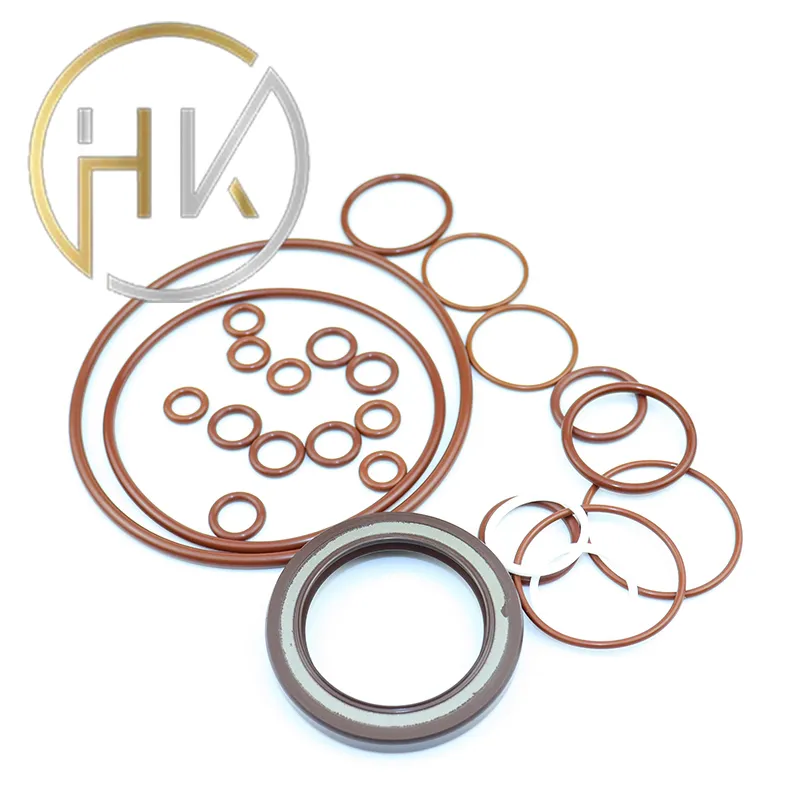Nov . 07, 2024 20:54 Back to list
Piston Sealing Rings for Enhanced Performance and Durability in Engine Applications
Understanding Piston Wiper Rings Functions and Importance in Engine Performance
Piston wiper rings are crucial components in an internal combustion engine, serving as a vital part of the piston assembly. These rings are specifically designed to control the oil that enters the combustion chamber, enhancing engine efficiency and reducing emissions. Understanding their function and importance can provide insights into engine performance and longevity.
The main role of a piston wiper ring is to wipe excess oil from the cylinder walls as the piston moves up and down during the combustion cycle. By preventing excessive oil from entering the combustion chamber, these rings help maintain the optimal air-fuel ratio, leading to improved combustion efficiency. This action not only aids in achieving a cleaner burn but also minimizes the amount of unburnt fuel, thus reducing harmful emissions and supporting environmental standards.
Piston wiper rings are typically made from durable materials such as cast iron or various types of polymers. The design of these rings can vary depending on the specific needs of the engine, including factors such as size, engine configuration, and the type of fuel being used. They are engineered to withstand the extreme conditions present in an engine—high temperatures, pressures, and varying levels of lubrication—while maintaining their shape and effectiveness over time.
piston wiper ring

One of the common issues associated with piston wiper rings is wear and tear. Over time, these rings can degrade due to friction and exposure to combustion gases, leading to a condition known as 'blow-by.' Blow-by occurs when combustion gases escape past the piston into the crankcase, which can result in increased oil consumption and a decrease in engine performance. This not only poses a problem for efficiency but can also lead to higher emissions and potentially serious engine damage if left unaddressed.
Regular maintenance and timely replacement of piston wiper rings are essential in ensuring that an engine operates smoothly and efficiently. Mechanics often conduct checks during routine service intervals to assess the condition of the rings along with other key components. If wear is detected, replacing the piston wiper rings can restore proper function and prolong the engine's life.
Additionally, the importance of piston wiper rings extends beyond just individual engine performance; they play a significant role in the overall vehicle efficiency and environmental impact. With stricter emissions regulations being implemented worldwide, manufacturers are increasingly focusing on developing advanced wiper ring technologies that improve engine design and contribute to cleaner vehicle operation.
In summary, piston wiper rings are integral to the performance and longevity of internal combustion engines. They help control oil consumption, enhance combustion efficiency, and reduce harmful emissions. Understanding their function and ensuring their proper maintenance can lead to improved engine performance and compliance with environmental standards. As technology evolves, we can expect to see even more innovative designs aimed at maximizing the effectiveness of these crucial components in the pursuit of greater efficiency and sustainability in automotive engineering.
-
TCN Oil Seal Metal Ring Reinforcement for Heavy Machinery
NewsJul.25,2025
-
Rotary Lip Seal Spring-Loaded Design for High-Speed Applications
NewsJul.25,2025
-
Hydraulic Cylinder Seals Polyurethane Material for High-Impact Jobs
NewsJul.25,2025
-
High Pressure Oil Seal Polyurethane Coating Wear Resistance
NewsJul.25,2025
-
Dust Proof Seal Double Lip Design for Construction Equipment
NewsJul.25,2025
-
Hub Seal Polyurethane Wear Resistance in Agricultural Vehicles
NewsJul.25,2025
-
The Trans-formative Journey of Wheel Hub Oil Seals
NewsJun.06,2025
Products categories
















